Christianity: A Cause of Modern Science
Christianity: A Cause of Modern Science
Christianity: A Cause of Modern Science
- No tags were found...
Create successful ePaper yourself
Turn your PDF publications into a flip-book with our unique Google optimized e-Paper software.
5natural laws, and without the philosophers/scientists totally rejecting the claims<strong>of</strong> religious truth. Seventh, man needs to be seen as fundamentally differentfrom the rest <strong>of</strong> nature, as having a mind that makes him qualitatively differentfrom the animals, etc., not just quantitatively different. The foundations for thisview are laid in the Judeo-Christian world view in Genesis where man andwoman were made in God's likeness and image, and were told they haddominion over the animals (Gen. 1:26-29). So long as all or most <strong>of</strong> false ideasin these areas are believed by a great majority <strong>of</strong> the intellectuals/"wise men" <strong>of</strong>a given culture, a self-sustaining science will not comes to exist in a givencivilization, especially any true science <strong>of</strong> bodies moving in the external realworld (i.e., physics, unlike math).Now, the tie between the acceptance or rejection <strong>of</strong> such ideas and the rise <strong>of</strong>modern science may not be altogether obvious. Hence, a lot <strong>of</strong> explanation isneeded to prove such connections, and this essay is only scratching thesurface. Readers seeking more evidence should read Jaki's works in particular.Also, it should be noted that some civilizations had all or most <strong>of</strong> these falseideas, such as Hindu India, while other(s) had fewer <strong>of</strong> them (China), andother(s) still fewer (Islam). Correspondingly, the last progressed in sciencefurther as compared to the other two correspondingly to the acceptance <strong>of</strong> suchideas, and the second more than the first. For instance, the Chinese lacked thedelusion the heavens were divine and/or living. Such an idea was found in Onthe Heavens, a very influential work by the ancient Greek philosopher Aristotle(384-322 B. C..), which hindered indigenous Islamic science permanently, andChristian science for many centuries before being finally cast <strong>of</strong>f. On the otherhand, Hindu science concerning the material world was crushed by almost allthese faulty intellectual ideas: the external real world and its orderliness weredenied, eternal cycles and the organismic view <strong>of</strong> nature were espoused, andthe heavens were seen as divine. Islamic science would have become selfsustainingpossibly, if its holy book the Quran (Koran) had not emphasizedGod's will and power so much as against His reason, and if Muslimphilosophers and scientists had not become so mesmerized by Aristotle'sphysics and philosophy. Let's briefly consider each <strong>of</strong> these great civilizations in




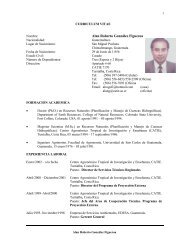
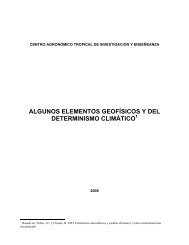
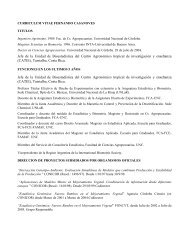
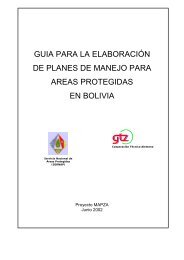
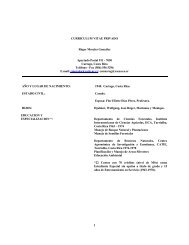
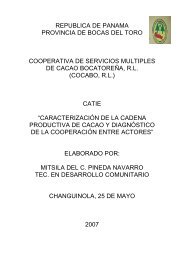
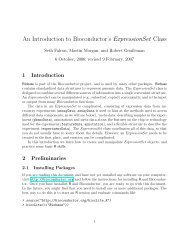
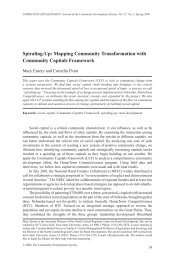

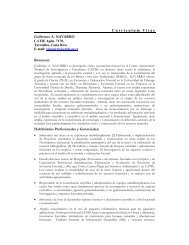

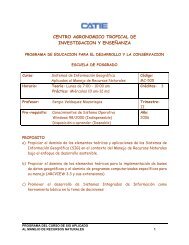
![Tratamientos y MD_2009 [Modo de compatibilidad].pdf - Catie](https://img.yumpu.com/49175499/1/190x134/tratamientos-y-md-2009-modo-de-compatibilidadpdf-catie.jpg?quality=85)